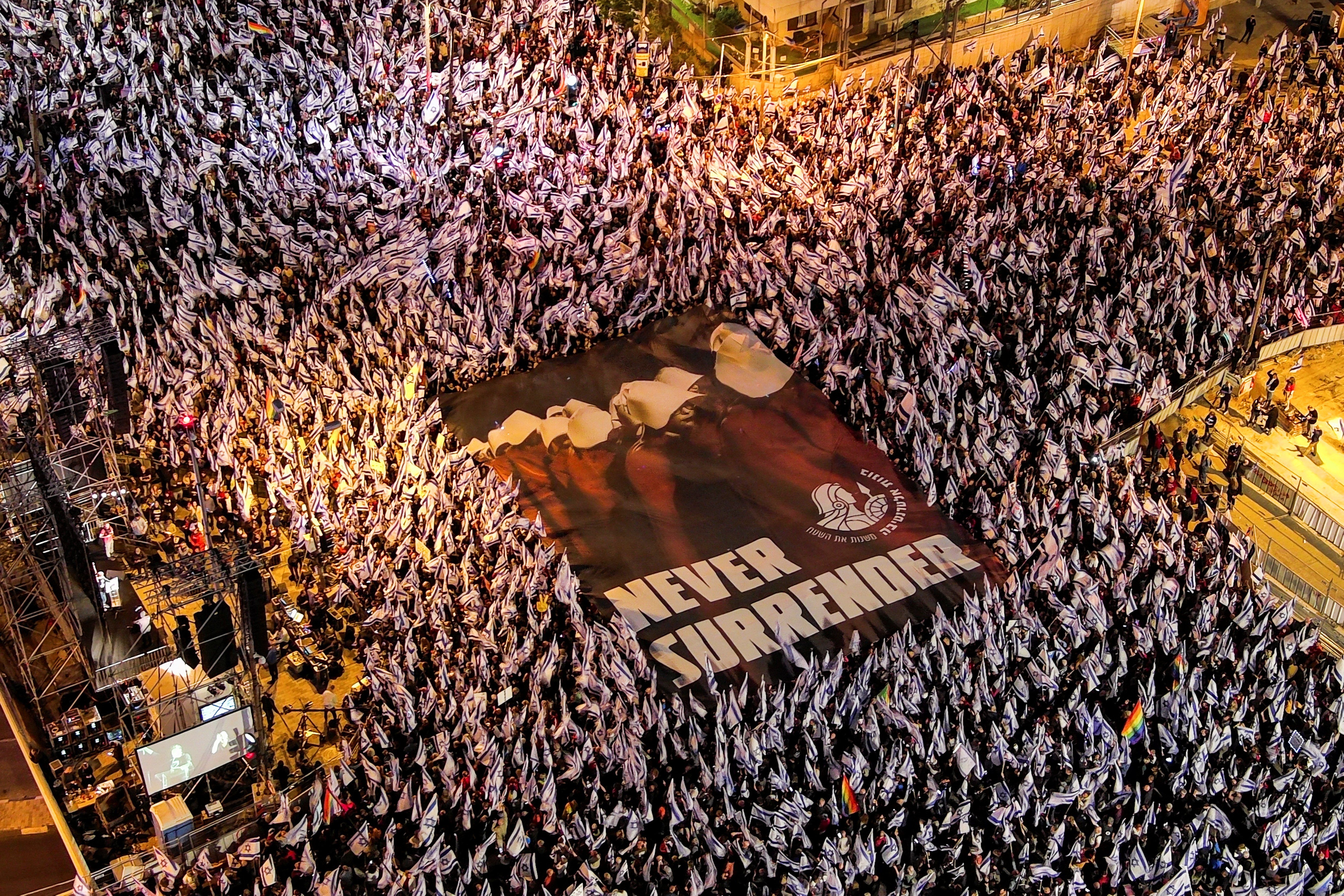Tens of thousands took to the streets of Israel’s main cities for the 17th consecutive weekend on Saturday to protest government plans to overhaul the judiciary. Meanwhile, smaller crowds rallied in favor of the reforms in Jerusalem ahead of Monday’s opening session of the Knesset (parliament), which will resume its debate over the divisive bill after a two-month pause ordered by PM Benjamin “Bibi” Netanyahu.
Recap: The judicial reform plan has thrown Israel into unprecedented political turmoil. Bibi and his far-right allies say it’s necessary to curb the power of activist judges, while critics call it a power play that would undermine the rule of law by allowing the government to appoint judges and overturn High Court rulings.
By the end of March, weeks of protests, strikes, and threats by soldiers and reservists to not report for duty forced the PM to head off a constitutional crisis by calling a timeout on the vote until the Knesset was back in session.
Still, not much has changed since then. President Isaac Herzog — who has warned of the potential for this to spark a civil war — is now leading cross-party talks in hopes of reaching a compromise to end the crisis. But whatever happens, the PM is stuck: Bibi can only placate protesters by shelving the reforms, but if he caves he can probably kiss his shaky coalition government goodbye.
Check out earlier on-the-ground coverage of one of the protests in Tel Aviv by GZERO’s Gabrielle Debinski.
